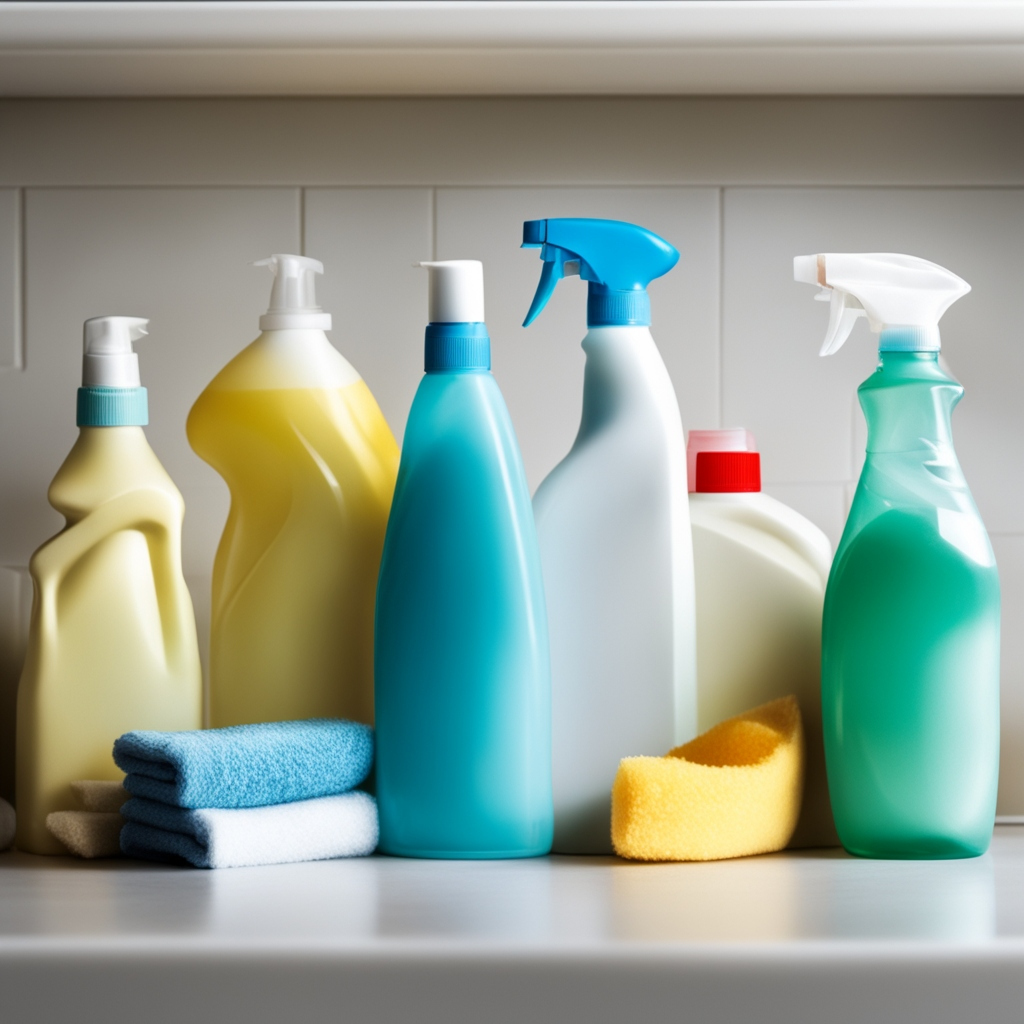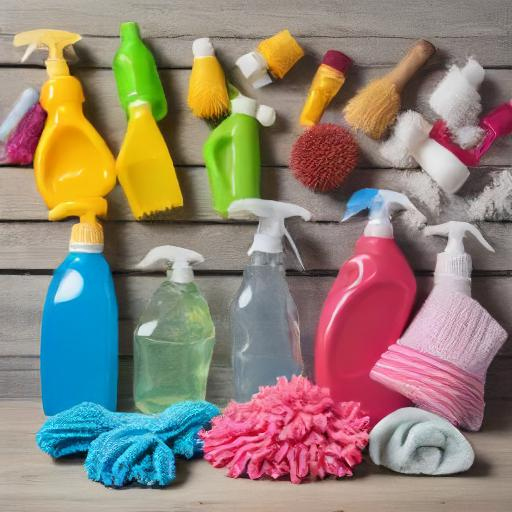
Discover the hidden dangers of brain-altering chemicals in your cleaning products and how they can impact your health.
Cleaning products that we use on a daily basis may contain brain-altering chemicals known as quaternary ammonium compounds, or ‘quats’. These compounds are commonly found in various cleaning products such as hand sanitizers, disinfectant wipes, and personal care products. Quats are known for their ability to eliminate viruses, bacteria, and other microbes by disrupting their cell membranes. However, recent studies have raised concerns about the potential harm that quats can cause to our bodies.
Quats have been associated with various health risks, including asthma and an increased risk of chronic obstructive pulmonary disease. Additionally, a recent study published in Nature.com suggests that quats can be potentially toxic to a specific type of brain cell called oligodendrocytes. These cells play a crucial role in transmitting neural signals through our brain, and any disruption to their function can have significant consequences.
While more research is needed to determine the direct correlation between quat exposure and neurodevelopmental issues in humans, the vulnerability of oligodendrocytes to these chemicals raises concerns about their potential impact on brain health.
It is important to understand the presence of quats in cleaning products and the potential risks associated with their use.
Understanding Quats: The Brain-Altering Chemicals in Cleaning Products
Potential Health Risks Associated with Quats in Cleaning Products
Exposure to quats in cleaning products has been linked to several health risks. One significant concern is the association between quat exposure and respiratory issues, such as asthma and chronic obstructive pulmonary disease (COPD). Studies have shown that prolonged exposure to quats can increase the risk of developing these respiratory conditions.
In addition to respiratory problems, recent research suggests that quats can have potentially harmful effects on brain health. Oligodendrocytes, a type of brain cell responsible for transmitting neural signals, have been found to be vulnerable to quats. This vulnerability raises concerns about the potential impact of quat exposure on brain function and development.
Further studies are needed to fully understand the extent of the health risks associated with quats in cleaning products. However, the existing evidence highlights the importance of being aware of the potential dangers and taking precautions to minimize exposure.

Studies Highlighting the Harmful Effects of Quats on Human Health
Several studies have shed light on the harmful effects of quats on human health. One study conducted in 2023 found a link between quat exposure and an increased risk of asthma and chronic obstructive pulmonary disease (COPD) in humans. The study revealed that individuals exposed to quats were more likely to develop these respiratory conditions.
Another study published in Nature.com explored the potential toxicity of quats on a type of brain cell called oligodendrocytes. The research suggested that quats could be potentially toxic to these brain cells, which are essential for efficient neural signal transmission. Although more research is needed to establish a direct correlation between quat exposure and neurodevelopmental issues in humans, these findings raise concerns about the impact of quats on brain health.
These studies highlight the need for further investigation into the potential harmful effects of quats on human health and emphasize the importance of understanding the risks associated with the use of cleaning products containing these chemicals.
Tips for Identifying and Avoiding Cleaning Products with Quats
To minimize your exposure to quats in cleaning products, it is essential to be able to identify and avoid products that contain these chemicals. Here are some tips to help you make informed choices:
– Read the labels: Check the labels of cleaning products for ingredients that contain quats. Look for terms such as ‘quaternary ammonium compounds’ or ‘quats’.
– Choose quat-free alternatives: Look for cleaning products that advertise themselves as quat-free or use natural ingredients as alternatives.
– DIY cleaning solutions: Consider making your own cleaning solutions using natural ingredients like vinegar, lemon juice, and baking soda.
– Research brands: Take the time to research different brands and their product formulations. Look for brands that prioritize using safe and non-toxic ingredients.
By being mindful of the cleaning products you use and opting for quat-free alternatives, you can reduce your exposure to potentially harmful chemicals.

Safe and Natural Alternatives to Traditional Cleaning Products Containing Quats
If you are concerned about the potential risks associated with quats in cleaning products, there are safe and natural alternatives available. Consider the following options:
– Vinegar: Vinegar is a versatile cleaning agent that can effectively remove dirt, stains, and odors. It is a natural disinfectant and can be used on various surfaces.
– Baking soda: Baking soda is another natural cleaning agent that can be used for scrubbing and deodorizing. It is gentle yet effective in removing tough stains.
– Lemon juice: Lemon juice is known for its antibacterial properties and pleasant scent. It can be used as a natural cleaner and disinfectant.
– Essential oils: Essential oils like tea tree oil, lavender oil, and eucalyptus oil have antimicrobial properties and can be added to homemade cleaning solutions for a pleasant fragrance.
By opting for these safe and natural alternatives, you can maintain a clean and healthy living environment without exposing yourself to potentially harmful chemicals.
Leave a Reply